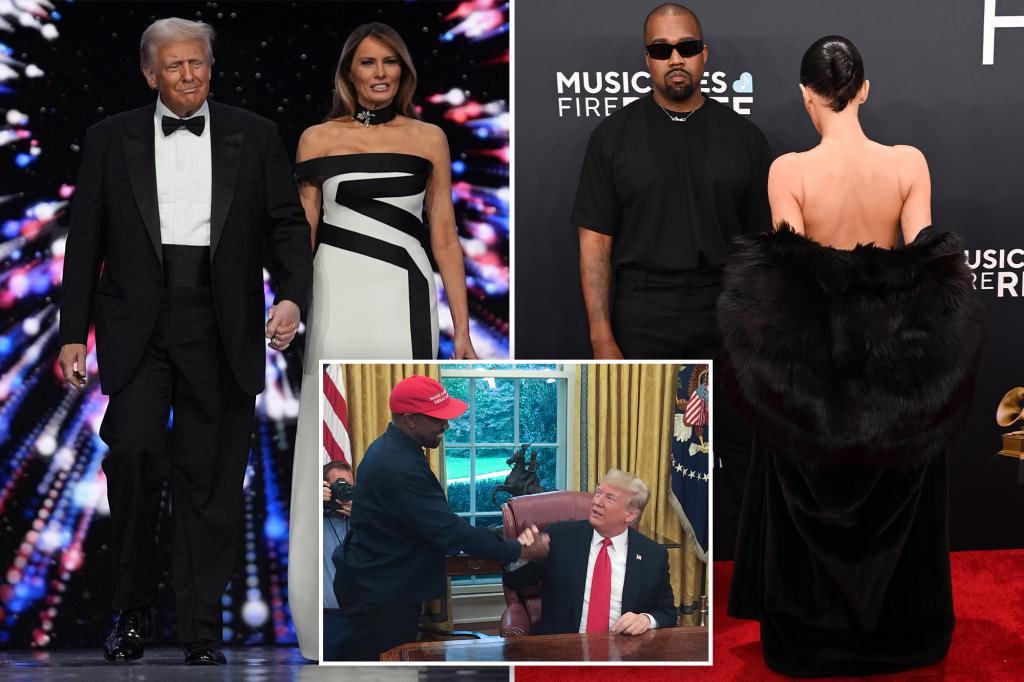Kanye West’s absence from Donald Trump’s presidential inauguration in 2025 stemmed from a request for yet another apology for his antisemitic remarks. This revelation surfaced during a Grammys after-party, where West, alongside his wife Bianca Censori, generated controversy with a nude red carpet appearance. West, in a conversation with Justin LaBoy on the “Respectfully Justin” podcast, attributed his non-attendance to the “censorship stigma” surrounding his previous antisemitic statements. He recounted being asked to issue a further apology addressing his antisemitic views as a condition for attending the inauguration, a demand he seemingly resisted. This incident highlights the ongoing tension between West’s political leanings, his admiration for Trump, and the backlash against his controversial pronouncements.
West’s explanation of his absence adds another layer to the complex relationship between the rapper and the former president. Despite his professed admiration for Trump, West has publicly criticized him on several occasions. His refusal to apologize again for his antisemitic remarks suggests a defiance of the political establishment and a reluctance to conform to expectations, even if it meant attending a significant political event. This recalcitrance underscores the conflict between his personal beliefs, his public image, and his political affiliations.
The requested apology for West’s antisemitic comments follows a pattern of controversial statements that have plagued his career in recent years. In late 2023, he issued a Hebrew-language apology on Instagram for his antisemitic outbursts during the promotion of his “Vultures” album. This apology, while seemingly sincere, was followed by yet another antisemitic tirade in Las Vegas shortly afterward, demonstrating the cyclical nature of his controversial behavior. The repeated nature of these incidents raises questions about the sincerity of his apologies and the effectiveness of attempts to hold him accountable for his words.
The Las Vegas incident, where West reportedly ranted about Trump, Jesus, and Adolf Hitler, further highlights the erratic and often offensive nature of his public pronouncements. This incident, taking place just weeks after his Christmas Day apology, undermined any goodwill he might have gained and reinforced the perception of him as someone unwilling or unable to control his controversial outbursts. The incident also serves as a reminder of the dangerous normalization of antisemitic rhetoric and the potential consequences of unchecked hate speech, particularly from figures with a large and influential platform.
The aftermath of West’s repeated antisemitic comments included the loss of lucrative partnerships with major brands like Balenciaga and Adidas in 2022. These severed ties represented a significant financial blow to West and underscored the risks associated with his controversial behavior. The loss of these partnerships indicates a growing intolerance within the corporate world for such pronouncements, even from high-profile figures. This suggests a shift in corporate social responsibility, where brands are increasingly held accountable for the actions and words of those they associate with.
Despite the controversy surrounding West, Trump maintained a relatively positive view of the rapper, describing him as “complicated” but “a really nice guy” with a “good heart” in August 2024. This seemingly forgiving stance, despite West’s repeated offensive remarks, highlights the complexities of their relationship. Trump’s willingness to overlook West’s controversial behavior, even while acknowledging its potential to cause trouble, is indicative of the former president’s tendency to prioritize personal loyalty over public condemnation, even in the face of significant societal disapproval. This illustrates the often transactional nature of political relationships, where alliances can outweigh ideological differences or concerns about public image.

